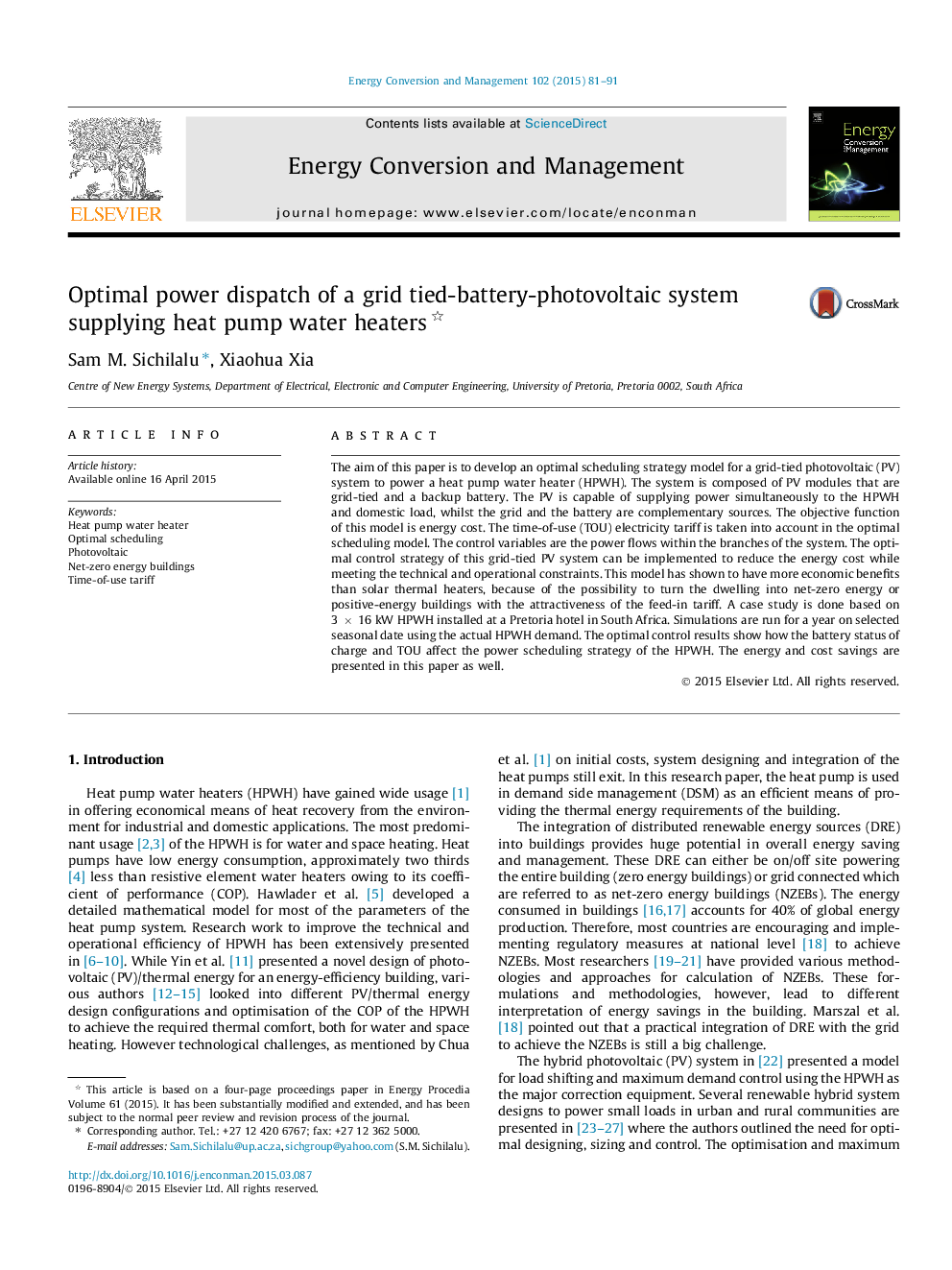| Article ID | Journal | Published Year | Pages | File Type |
|---|---|---|---|---|
| 763536 | Energy Conversion and Management | 2015 | 11 Pages |
•Optimal control strategy for grid-tied PV system for heat pump is modelled.•Daily energy cost saving of around 52.54% is shown.•Saved energy cost is due to optimal control and storage with time-of-use.•Potential of a daily energy saving of about up to 103.75 kW h is shown.•The optimal photovoltaic energy feed-into the grid is modelled.
The aim of this paper is to develop an optimal scheduling strategy model for a grid-tied photovoltaic (PV) system to power a heat pump water heater (HPWH). The system is composed of PV modules that are grid-tied and a backup battery. The PV is capable of supplying power simultaneously to the HPWH and domestic load, whilst the grid and the battery are complementary sources. The objective function of this model is energy cost. The time-of-use (TOU) electricity tariff is taken into account in the optimal scheduling model. The control variables are the power flows within the branches of the system. The optimal control strategy of this grid-tied PV system can be implemented to reduce the energy cost while meeting the technical and operational constraints. This model has shown to have more economic benefits than solar thermal heaters, because of the possibility to turn the dwelling into net-zero energy or positive-energy buildings with the attractiveness of the feed-in tariff. A case study is done based on 3×16kW HPWH installed at a Pretoria hotel in South Africa. Simulations are run for a year on selected seasonal date using the actual HPWH demand. The optimal control results show how the battery status of charge and TOU affect the power scheduling strategy of the HPWH. The energy and cost savings are presented in this paper as well.
